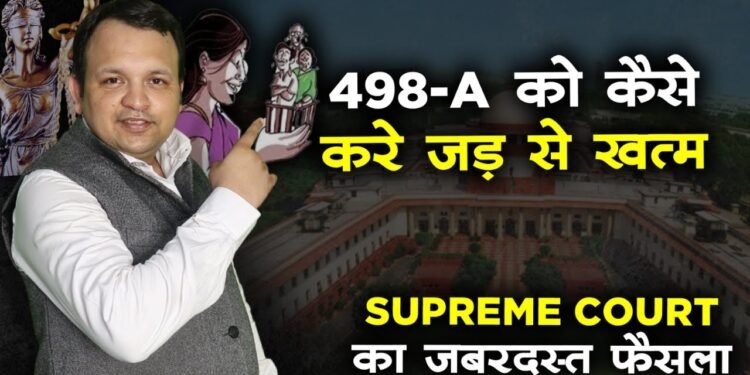Introduction
Instances abound where First Information Reports (FIRs) are filed on the basis of false and frivolous claims. In such cases, the remedy often sought is to file a quash petition. Questions often arise regarding the potential for quashing an FIR. Moreover, if a petition under Section 482 of the Code of Criminal Procedure (CrPC) is filed in the High Court to challenge an FIR and a charge sheet is submitted during the pendency of the quashing petition, what courses of action can be pursued?
Recently, the Supreme Court addressed these pertinent issues in a significant case.
Landmark judgement of Abhishek Lodhi vs. State of Madhya Pradesh, 23rd August 2023
Facts of the Case:
In 2007, a husband and wife were married. The husband worked in the film industry in Mumbai, while the wife was a teacher. They initially lived with the husband’s family in Indore but shifted to Mumbai due to work. However, marital disputes arose, leading to the decision not to live together. The wife accused the husband’s family of dowry harassment and returned to her parents’ home in 2009. For four years, no action was taken. In 2013, she filed an FIR under Section 498A of the Indian Penal Code (IPC). This section deals with cruelty towards a married woman by her husband or his relatives.
She named her two brothers-in-law, mother-in-law, and husband as the accused in the FIR. The mother-in-law and brothers-in-law approached the Madhya Pradesh High Court, arguing that the wife had barely stayed with them for a few days and had primarily lived with her husband in Mumbai.
During the pendency of a quashing petition under Section 482, if the police file a charge sheet against all those named in the FIR, can the quashing continue? This issue was examined in the Supreme Court.
Final Judgement:
Issue 1: Chargesheet Filed During Pendency of Quashing Petition
The Supreme Court referred to the decision in Anand Kumar Mohatta vs. State (Govt. of NCT of Delhi) on 15th November 2018, making it clear that whether a chargesheet is filed or not has no bearing on the quashing petition. If the court deems the case frivolous, the high court can quash it. The Supreme Court emphasized that the mere filing of a chargesheet does not preclude quashing under Section 482. Therefore, the ground for dismissal of the FIR based on the chargesheet being filed was incorrect, and the high court’s decision was flawed.
Issue 2: Quashing of FIR under Section 498A
The Supreme Court considered two crucial judgments – Preeti Gupta & Anr vs. State of Jharkhand & Anr (13th August 2010) and Kahkashan Kausar @ Sonam vs. The State of Bihar (8th February 2022).
The Court examined several grounds:
1. Delay in FIR: The wife left her matrimonial home in 2009 but did not file the FIR until 2013. The Court questioned why there was no complaint during the intervening four years.
2.Contradiction in Statements: The wife provided different versions of events. Referring to the judgment in State of Haryana and Ors vs. Ch. Bhajan Lal and Ors (21st November 1990), the Court noted that if a case is found to be false or frivolous, parents can approach the High Court under Section 482 to have the FIR quashed.
3. Allegation vs. Evidence: The Court emphasized that even if there were allegations, without sufficient evidence, a case could be quashed.
Conclusion:
The Supreme Court concluded that during the pendency of a petition under Section 482, whether or not a chargesheet has been filed, the FIR can be quashed if it is found to be false, frivolous, or not substantiated by evidence. In this case, the FIR was quashed against all three accused.
For understanding more such complex law in simple ways, stay connected with www.thelegalshots.com .
If doubts still persist, contact our Legal Experts at




